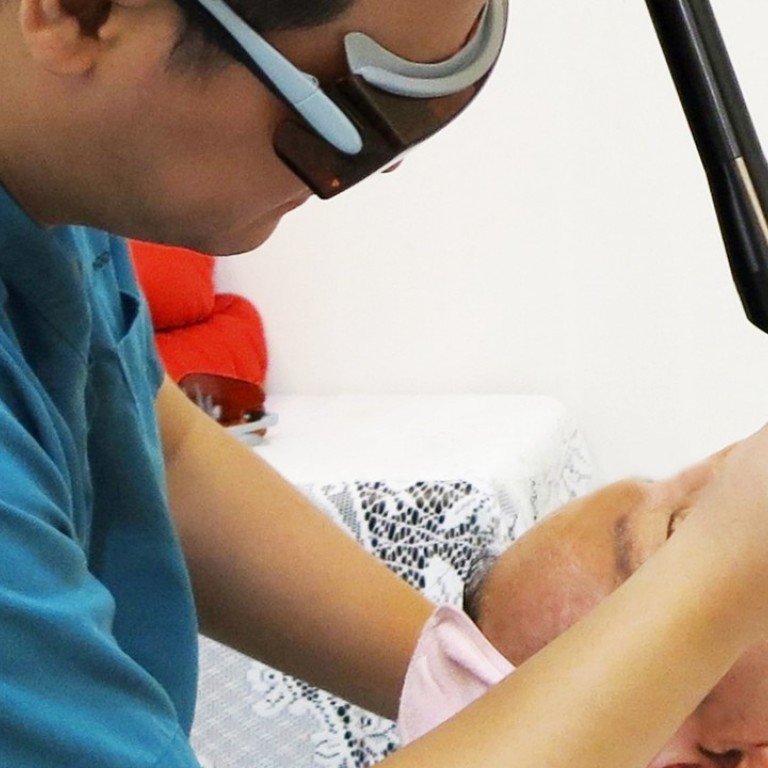
Fosun unit Sisram Medical says China will be its largest market as demand for cosmetic laser surgery rises
The conglomerate’s laser maker expects China to contribute 35 per cent of its revenue by 2023 as demand for aesthetic treatments increases
Israeli medical laser maker Sisram Medical, a unit of Chinese conglomerate Fosun International, said it expects China to overtake the United States as its biggest market in five years, thanks to rising demand for cosmetic treatments.
China is expected to contribute more than 35 per cent of the Hong Kong-listed company’s revenue by 2023, followed by the US with 30-35 per cent, said Lior Dayan, Sisram’s chief executive. The US currently accounts for exactly a quarter of Sisram’s revenue, followed by China at 21 per cent, based on data from the company’s 2017 fiscal report.
The company’s products include lasers for non-invasive procedures such as hair removal and cosmetic skin treatments.
“China will be a leader for several reasons,” said Dayan on Tuesday. Among them are the “economies of scale it affords”, and a growing awareness among the population of aesthetic services powered by technology.
Citic Securities agrees with Dayan’s assessment. China has seen a rise in demand for cosmetic treatments, backed by rising disposable incomes and a shift towards the use of technology to improve personal appearance, it said in a report.
The global market for technology-based aesthetic treatment systems, such as laser devices, is projected to rise to US$4.4 billion in 2021, at a compound annual growth rate of 10.4 per cent, from US$2.7 billion in 2016, according to US-based research company Medical Insight. And China is expected to outpace this growth pace, rising by 16 per cent, to US$327 million, the company said.
Sisram, a subsidiary of Fosun Pharmaceutical incorporated in Israel in 2013, is the fifth largest player in the market globally and the biggest in China.
It became the first Israeli company to be listed in Hong Kong in September 2017 by raising HK$689 million (US$88 million), part of which it will use to fund strategic acquisitions. The company has “a couple” of targets in mind and is expected to disclose more details in the next few months.
Dayan said Sisram will make use of its positioning as an Israeli company controlled by one of China’s most acquisitive conglomerates to “bridge the west and the east.”
“The first priority is US operations coming into China,” he said.
The company is also open to introducing some of Fosun’s pharmaceutical operations internationally by making use of its global channels in more than 80 countries.
“We are looking at that synergy as well,” said Dayan, without elaborating.
The company reported its best financial performance in 2017, when revenue gained 16 per cent on the year to US$137 million and profits surged 37 per cent to US$11 million.
Citic Securities expects Sisram’s 2020 revenue to top US$193 million, up 41 per cent from 2017. Its profits are projected to more than double to US$24 million.

